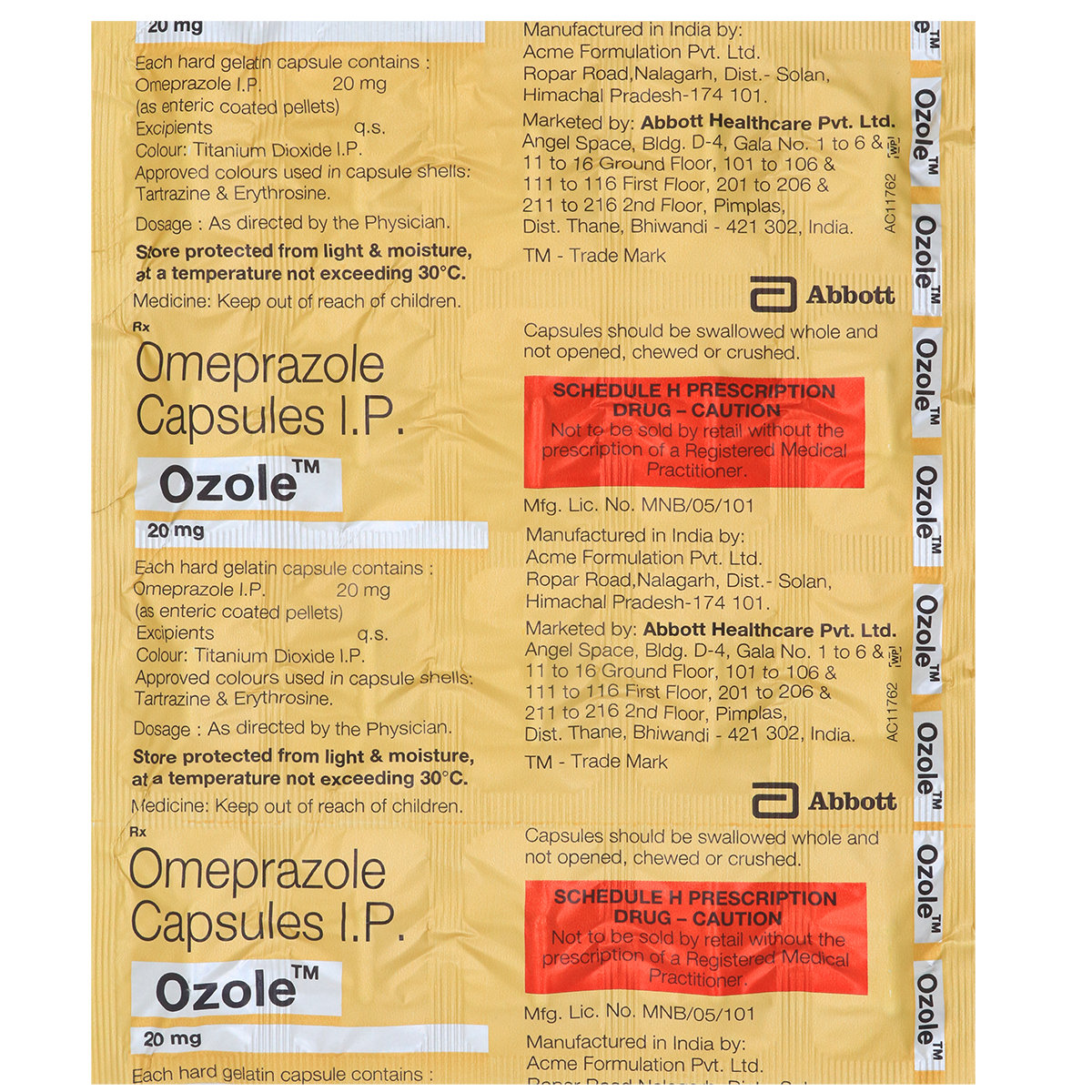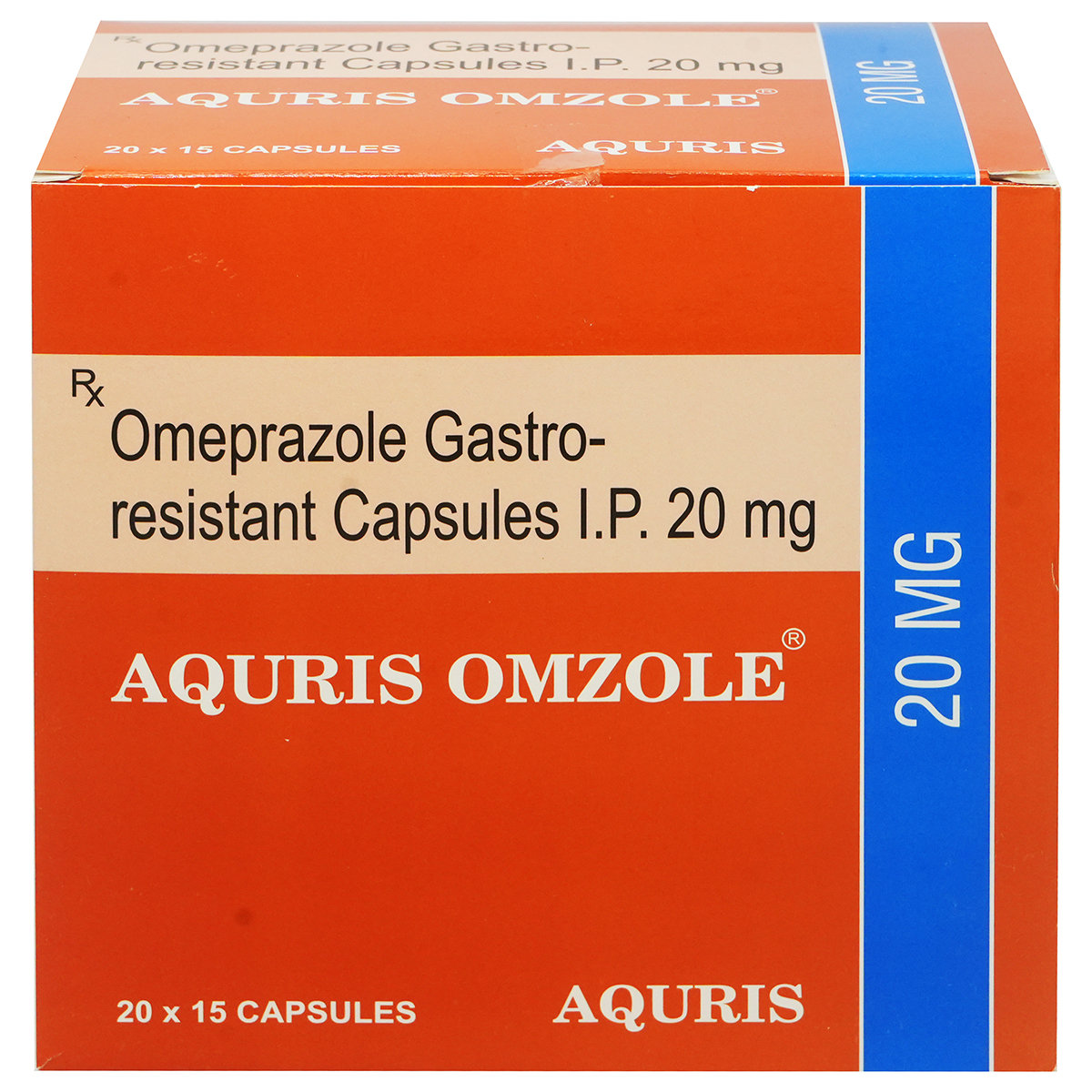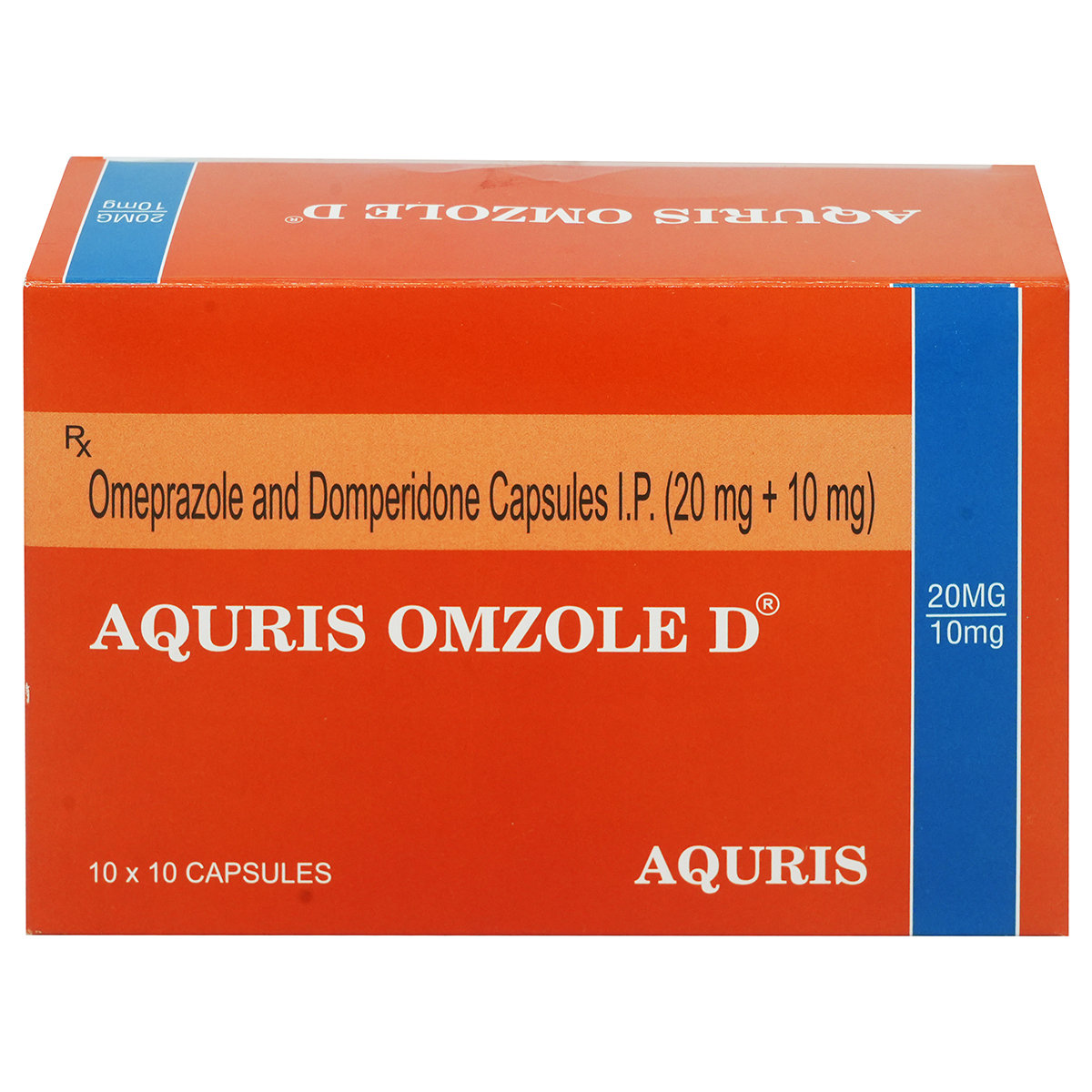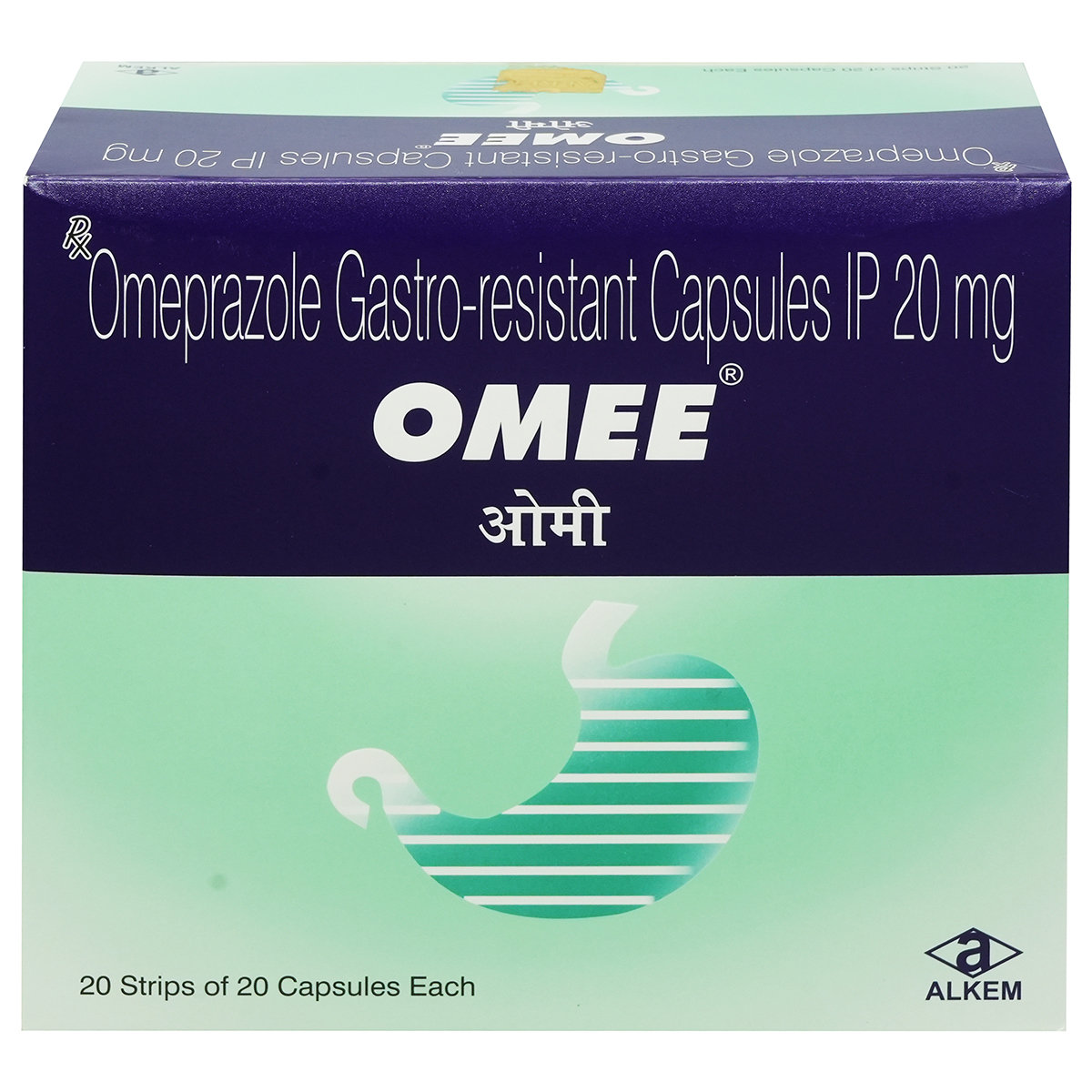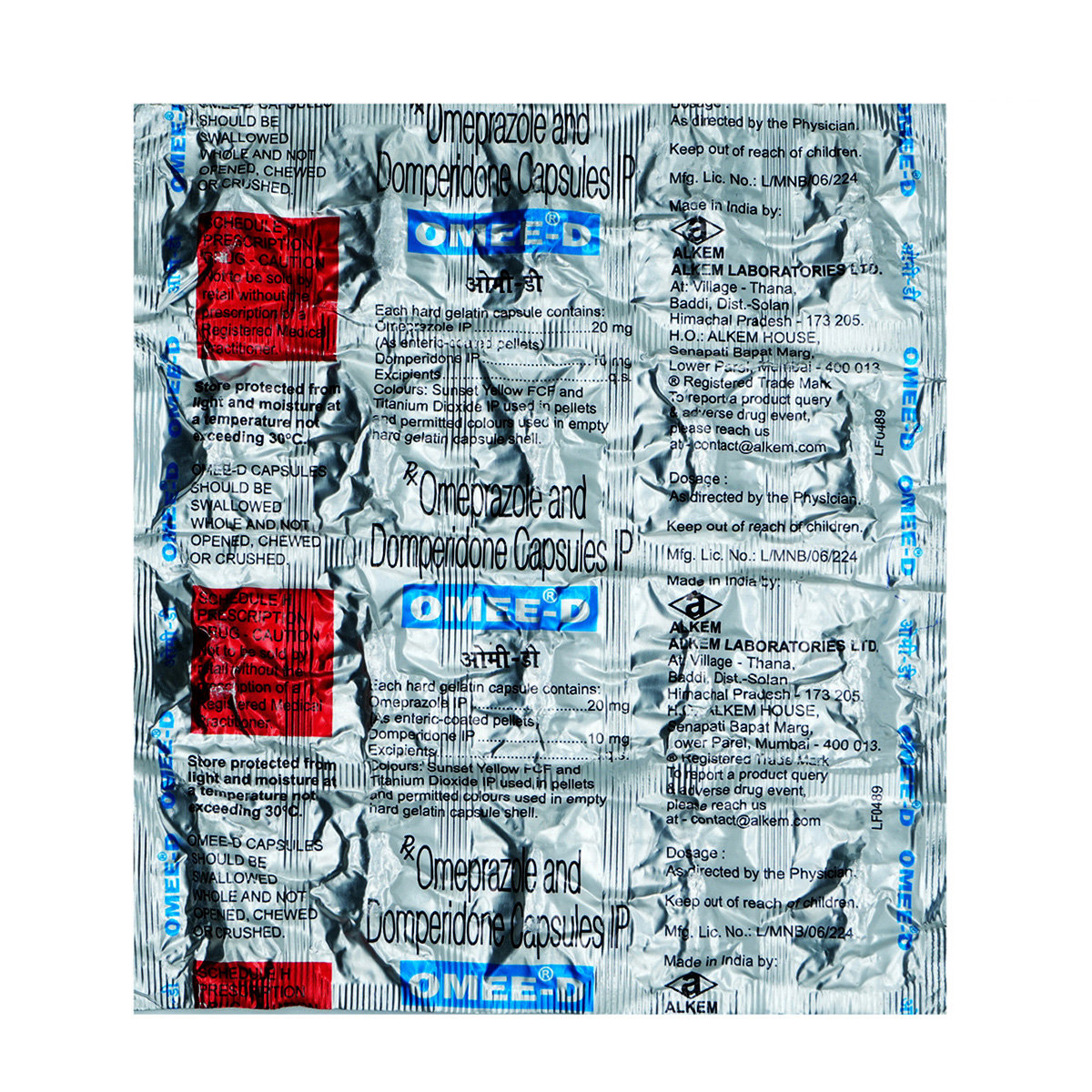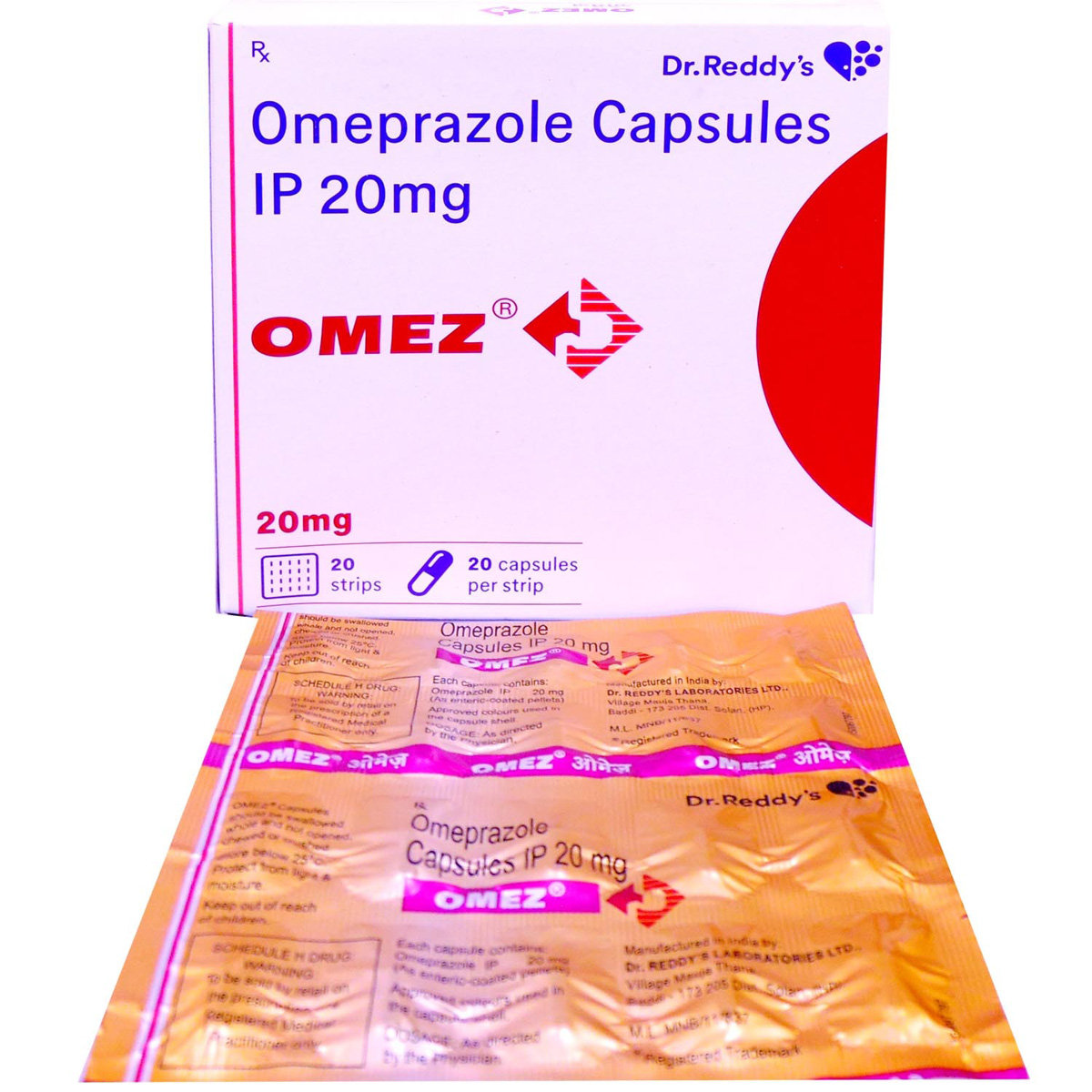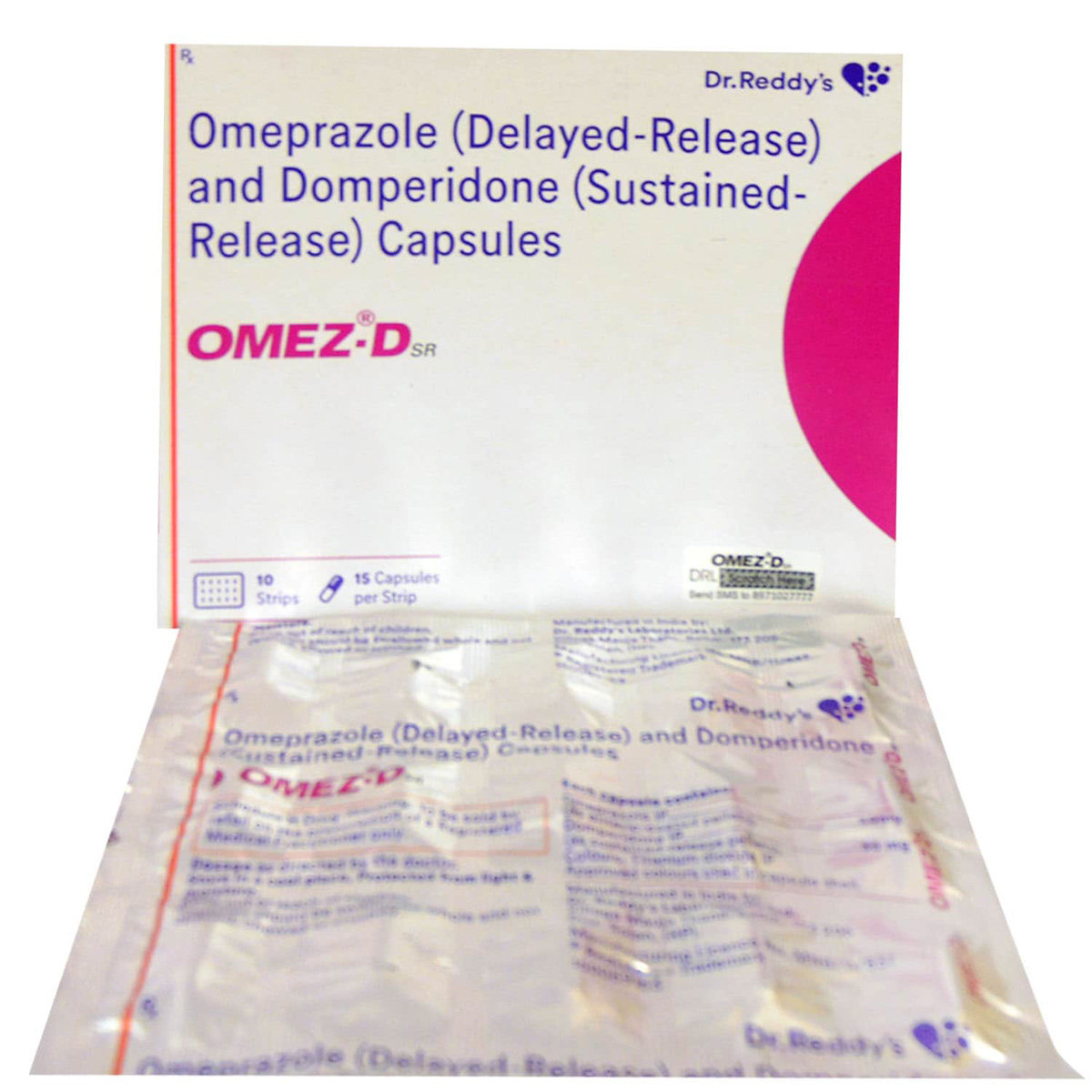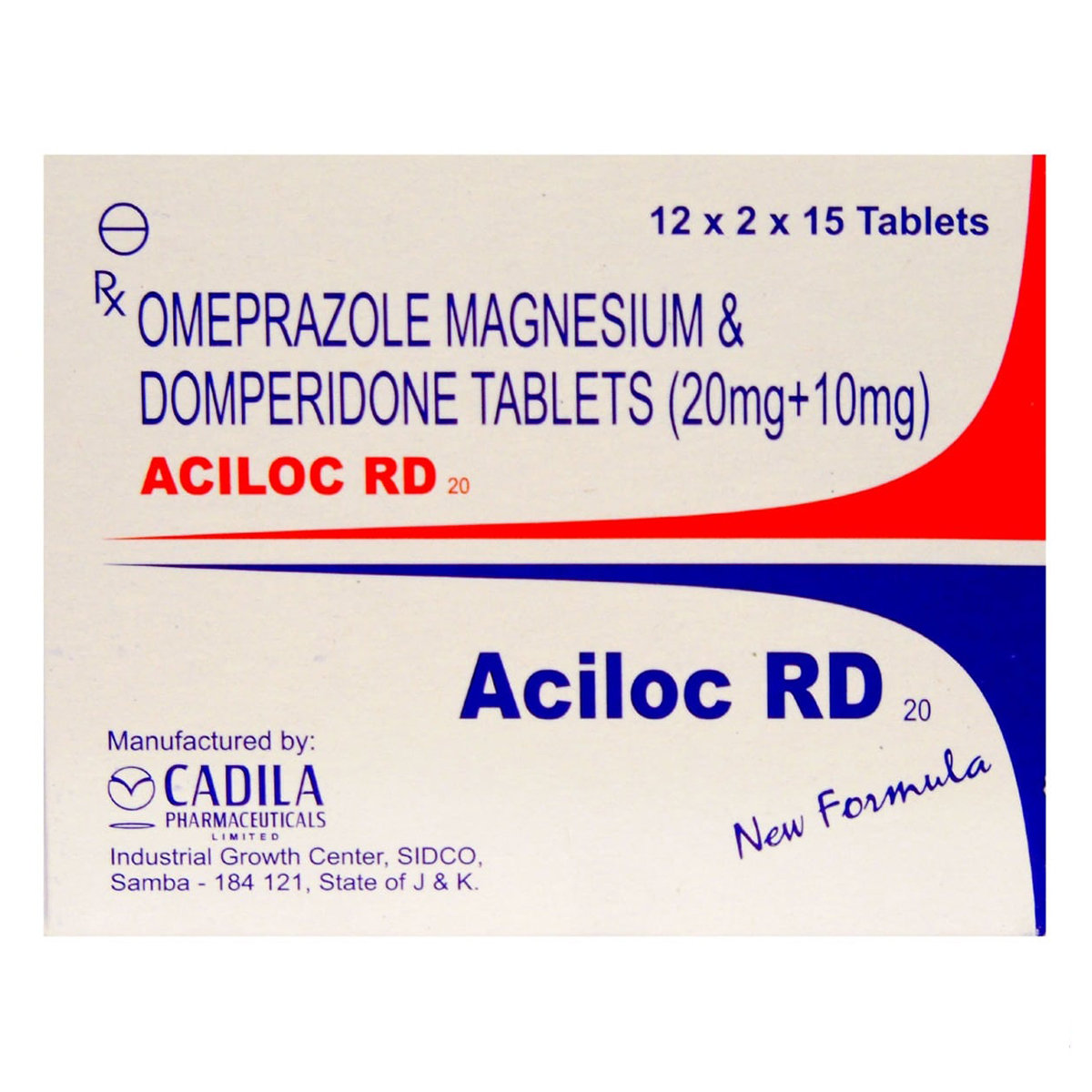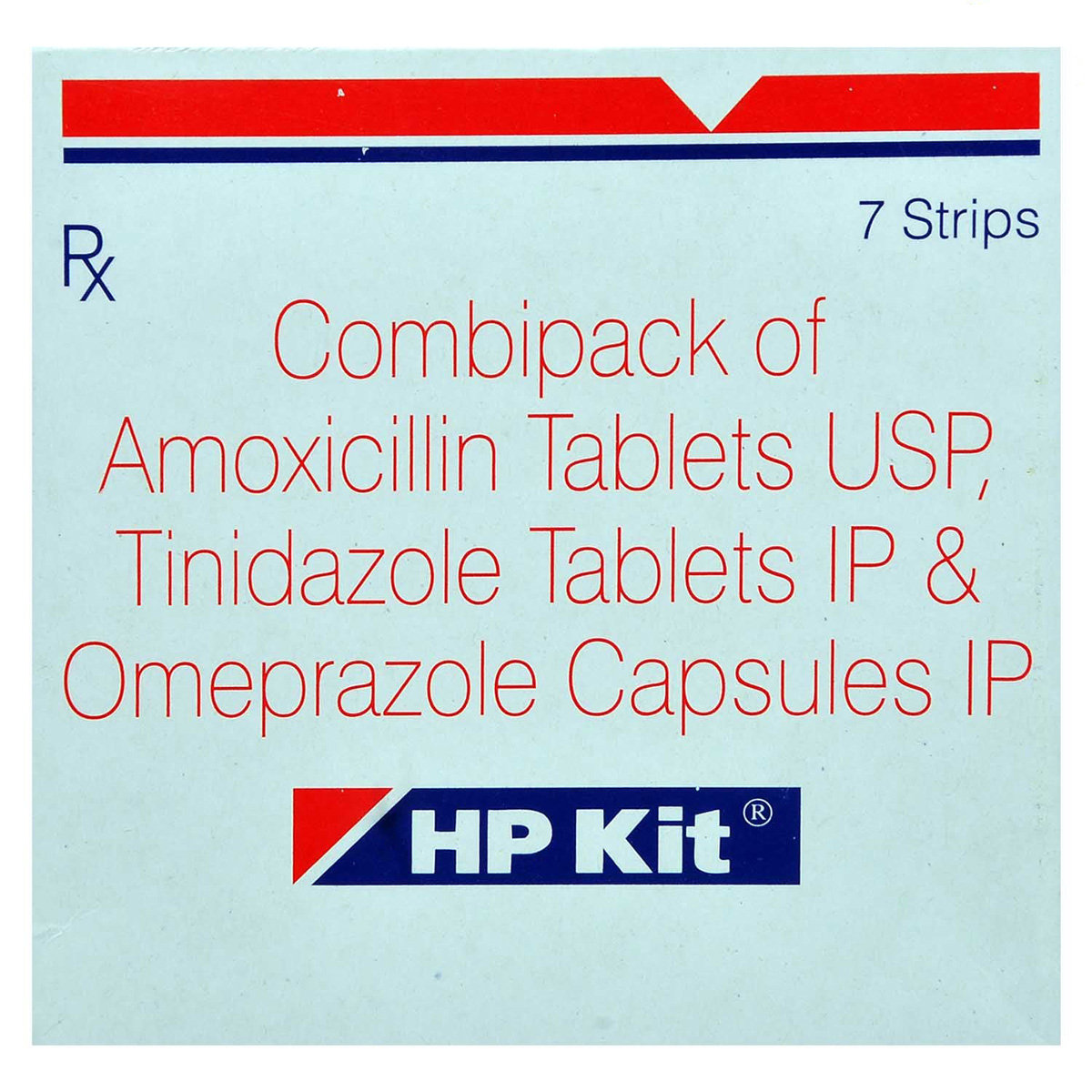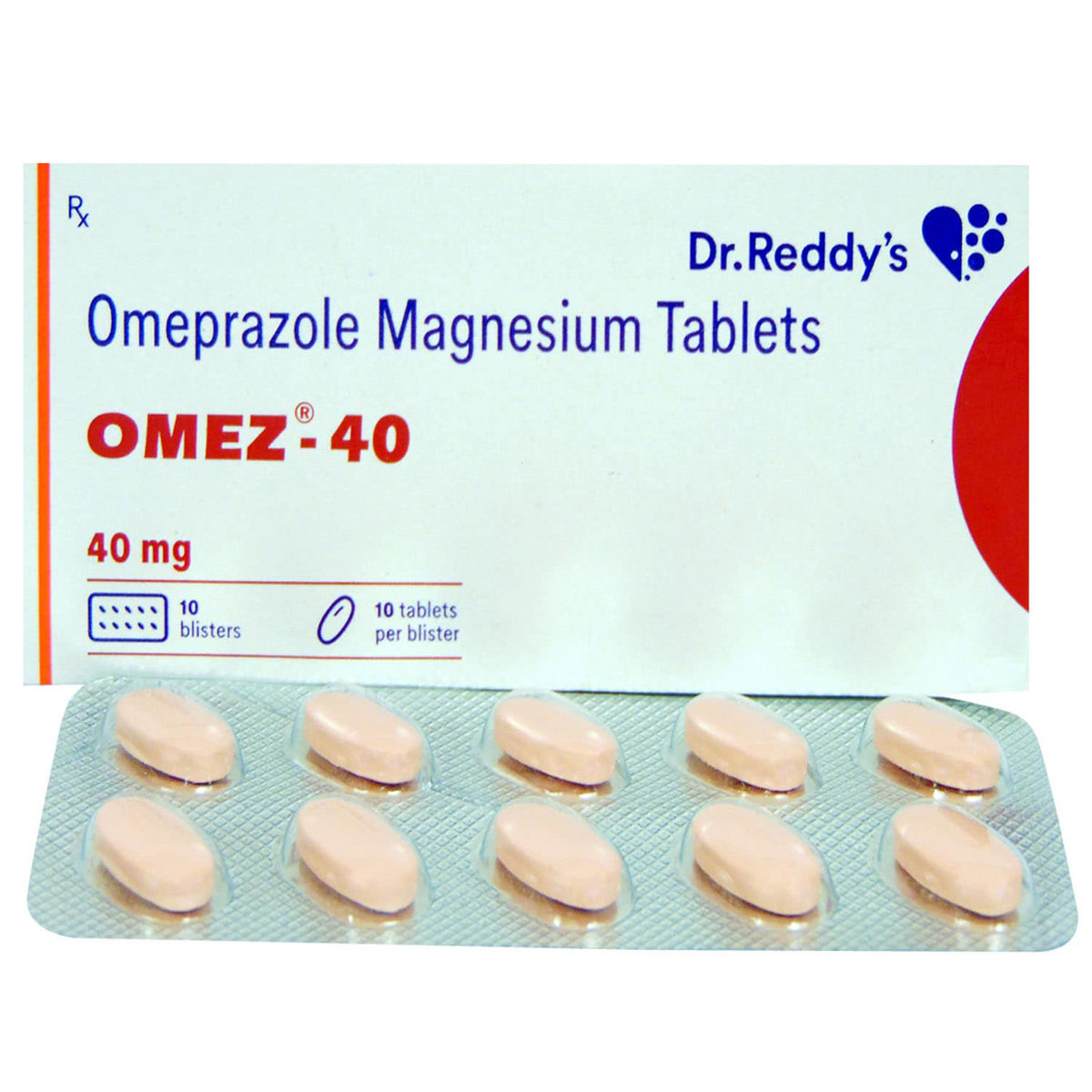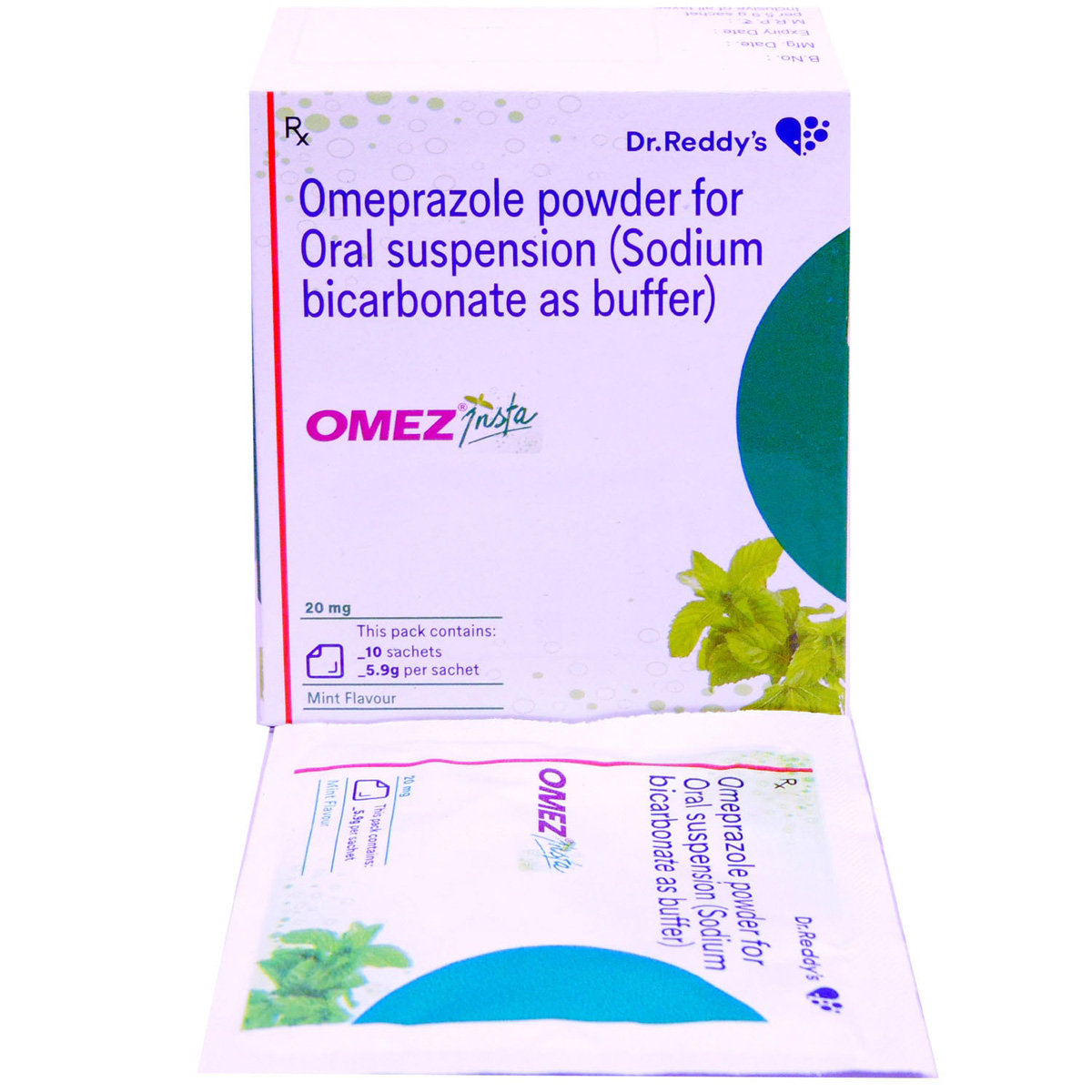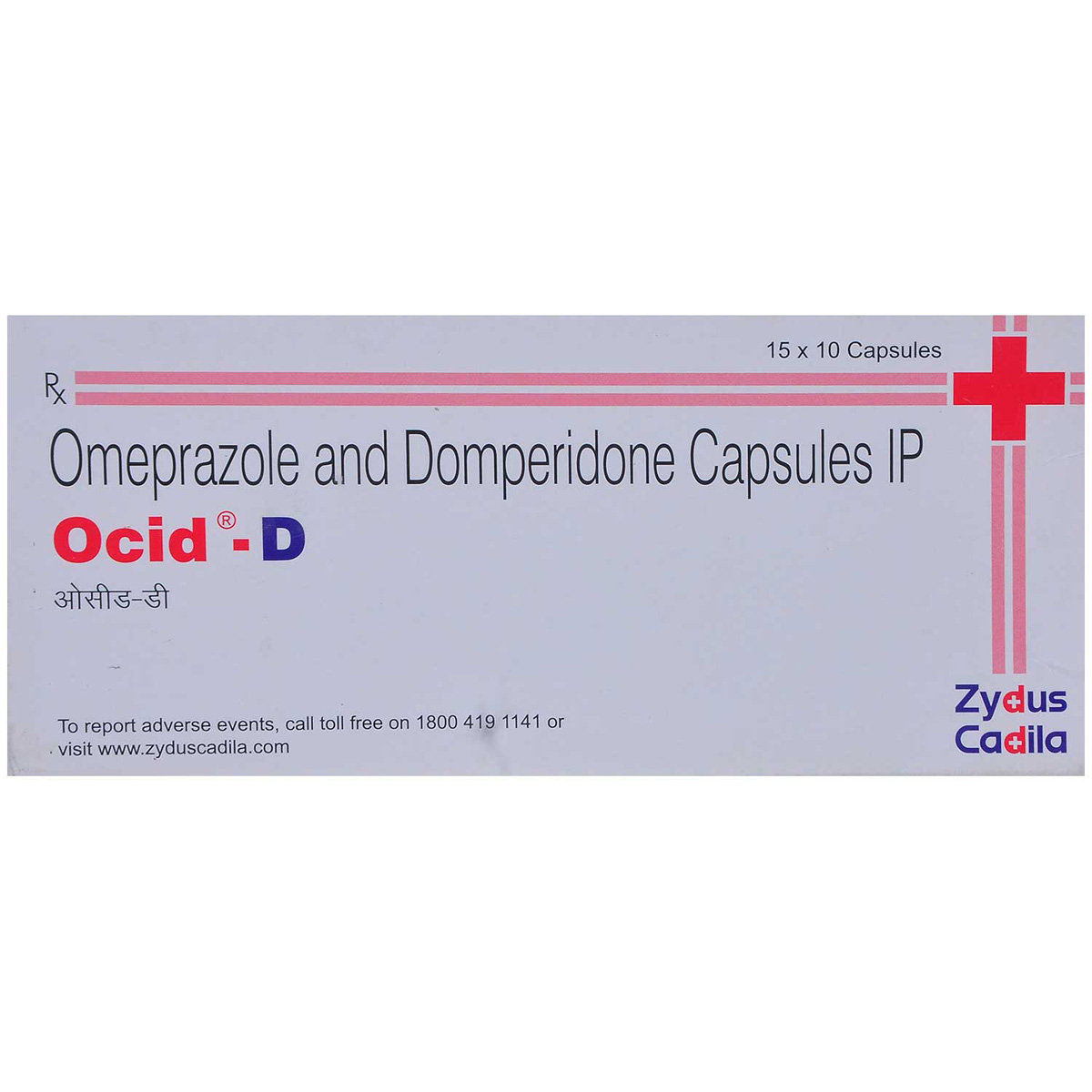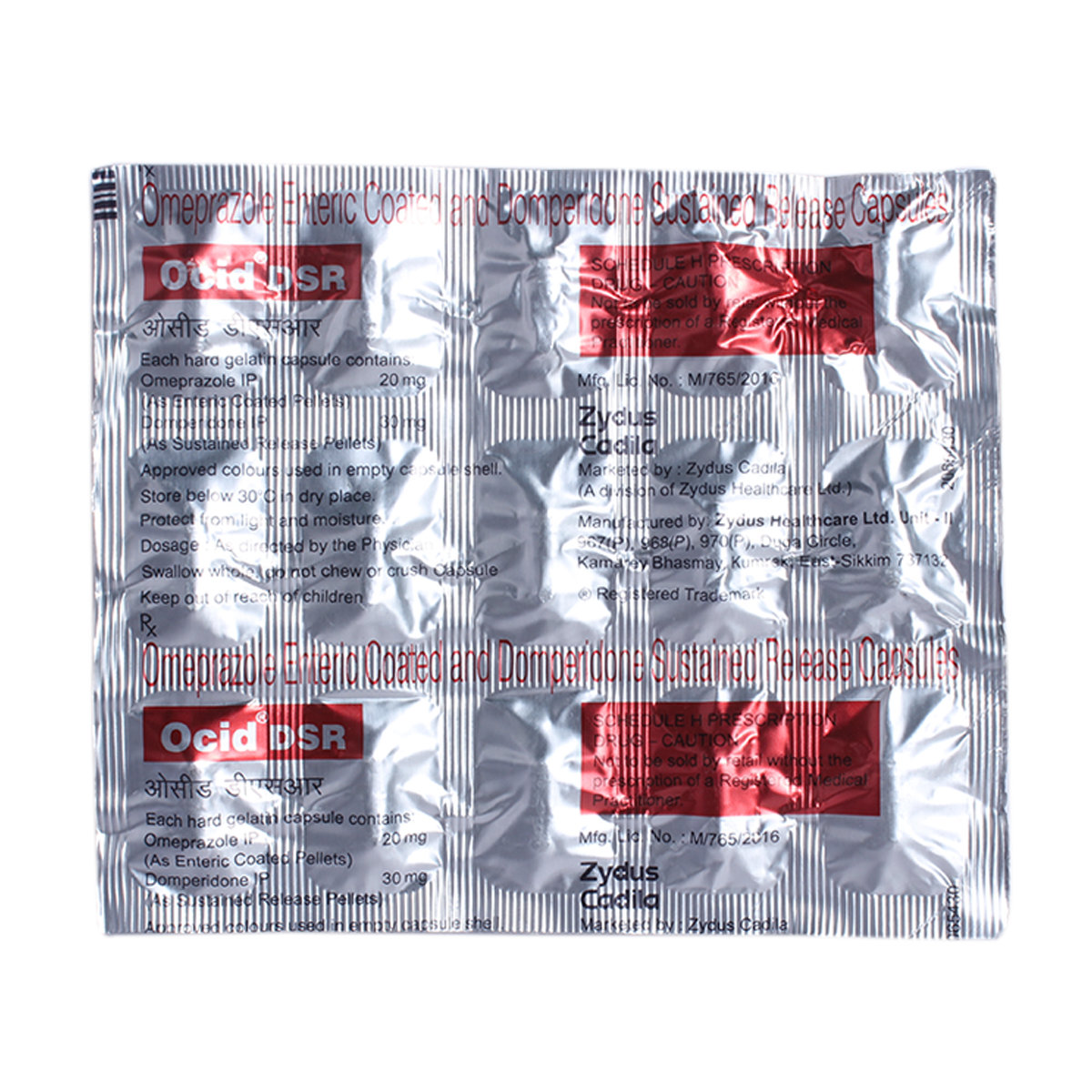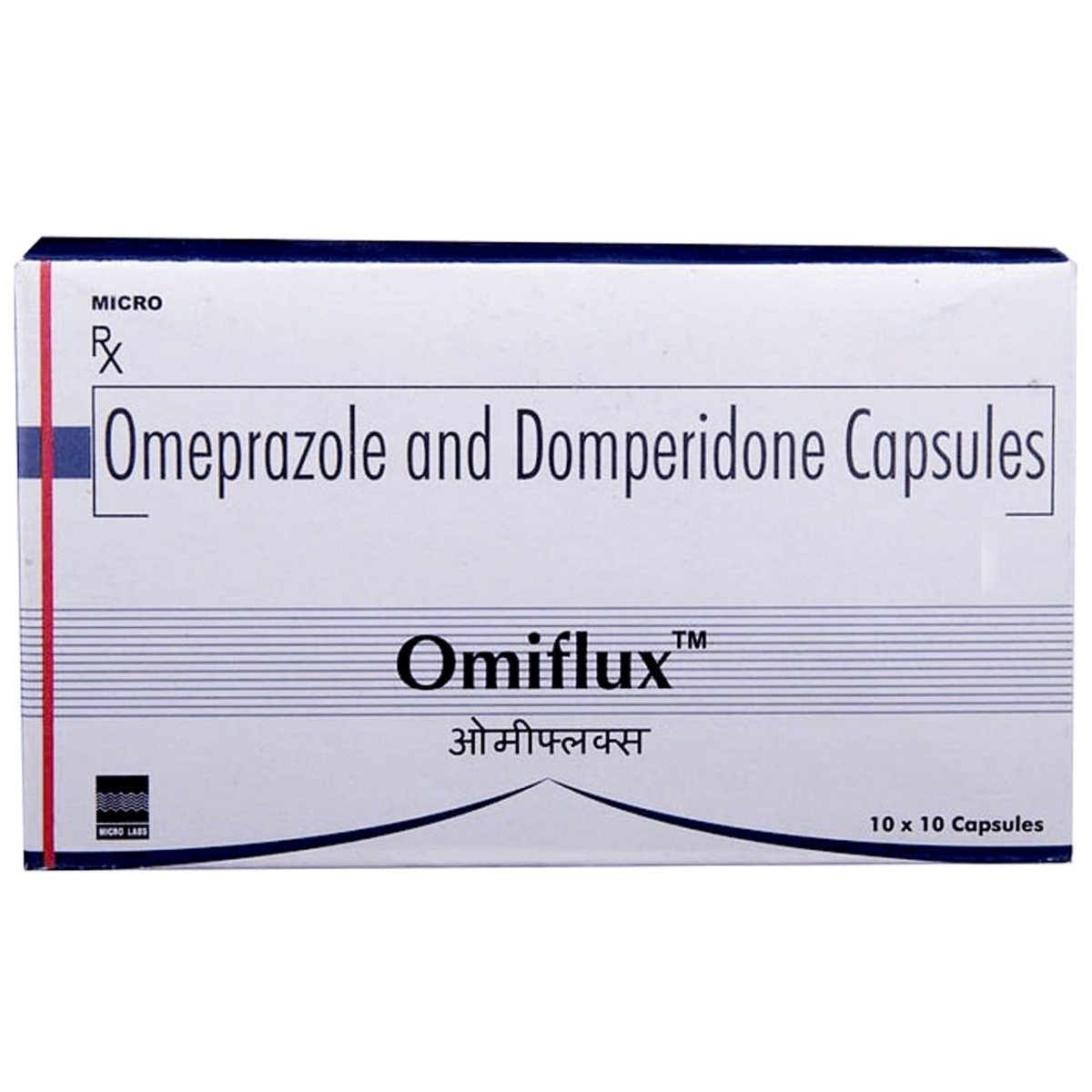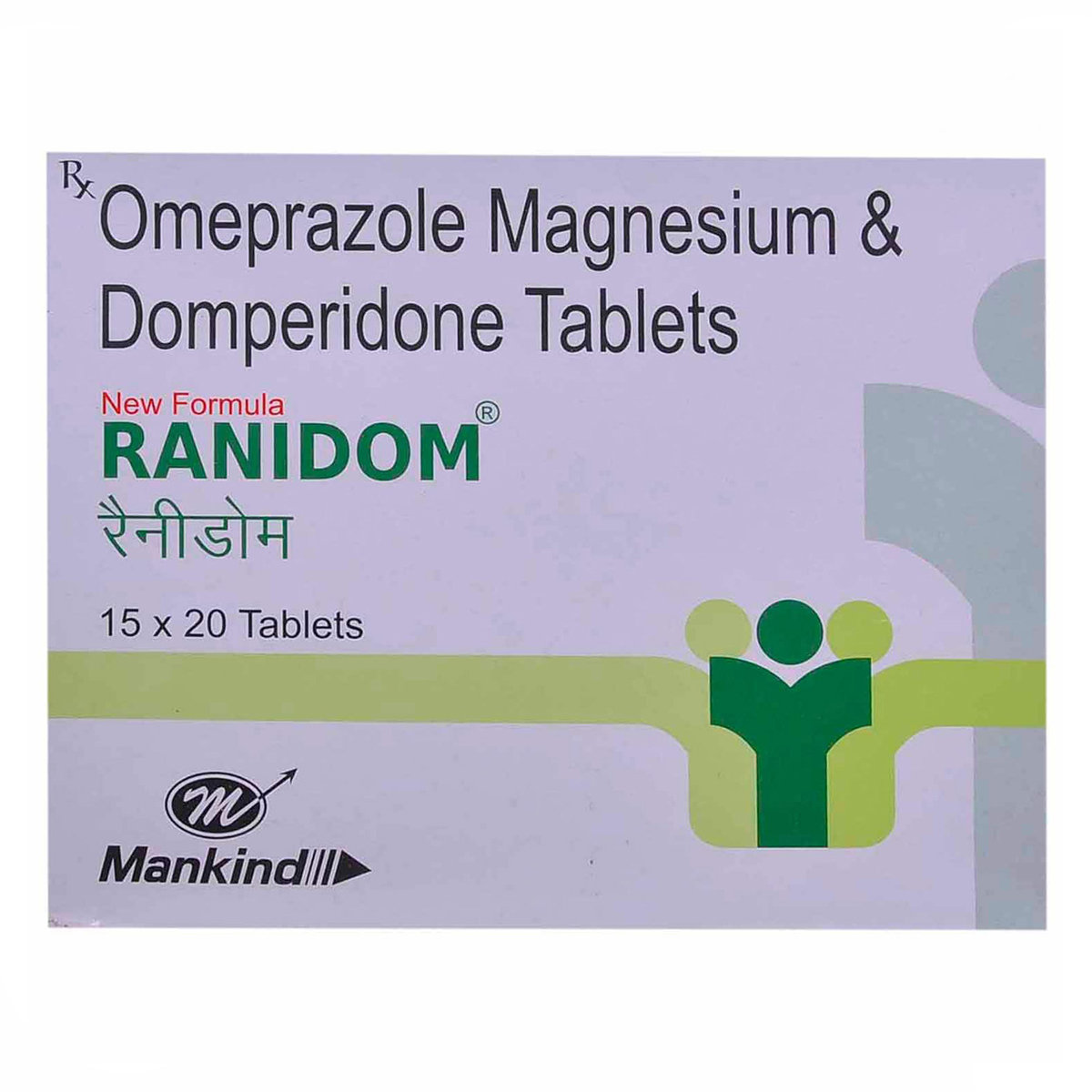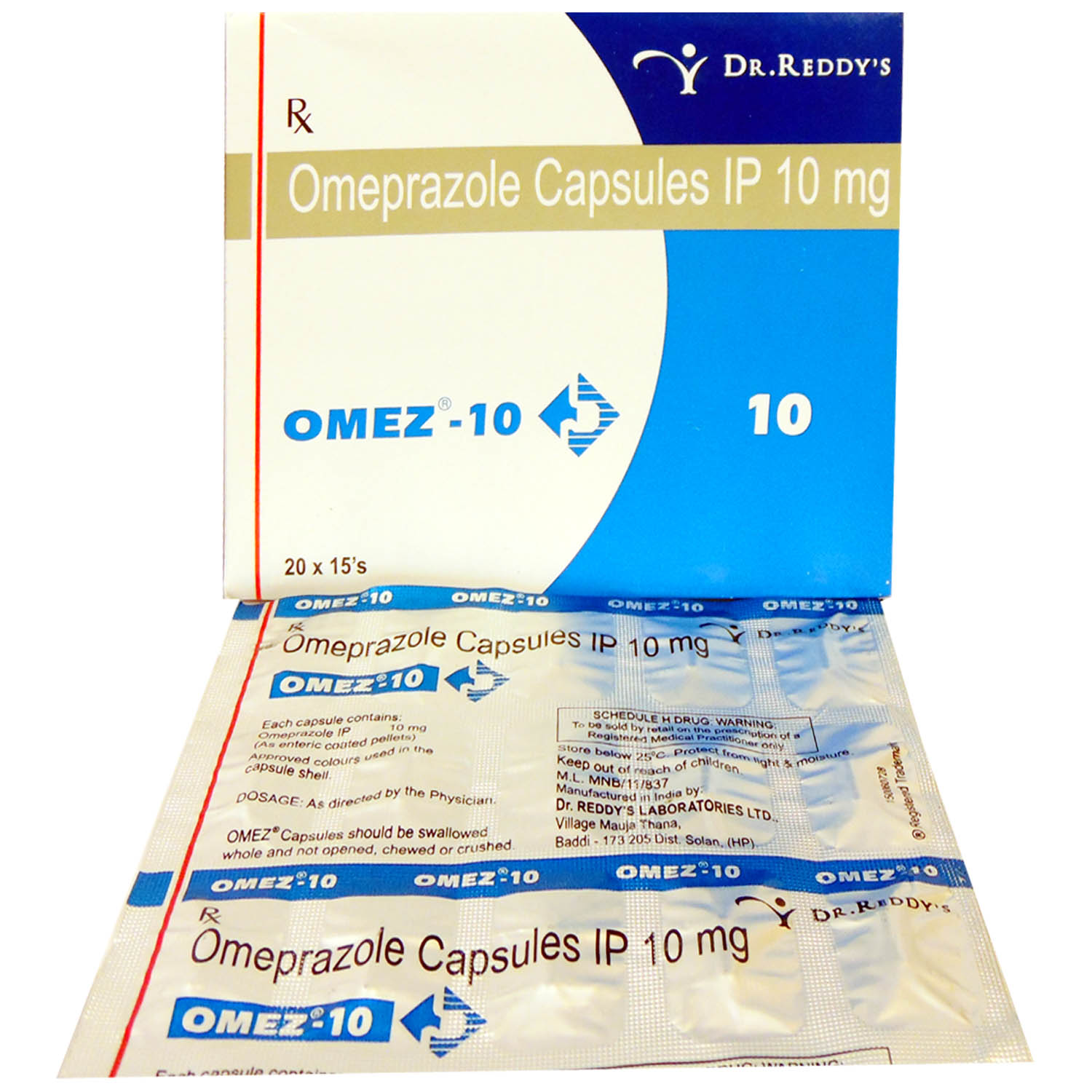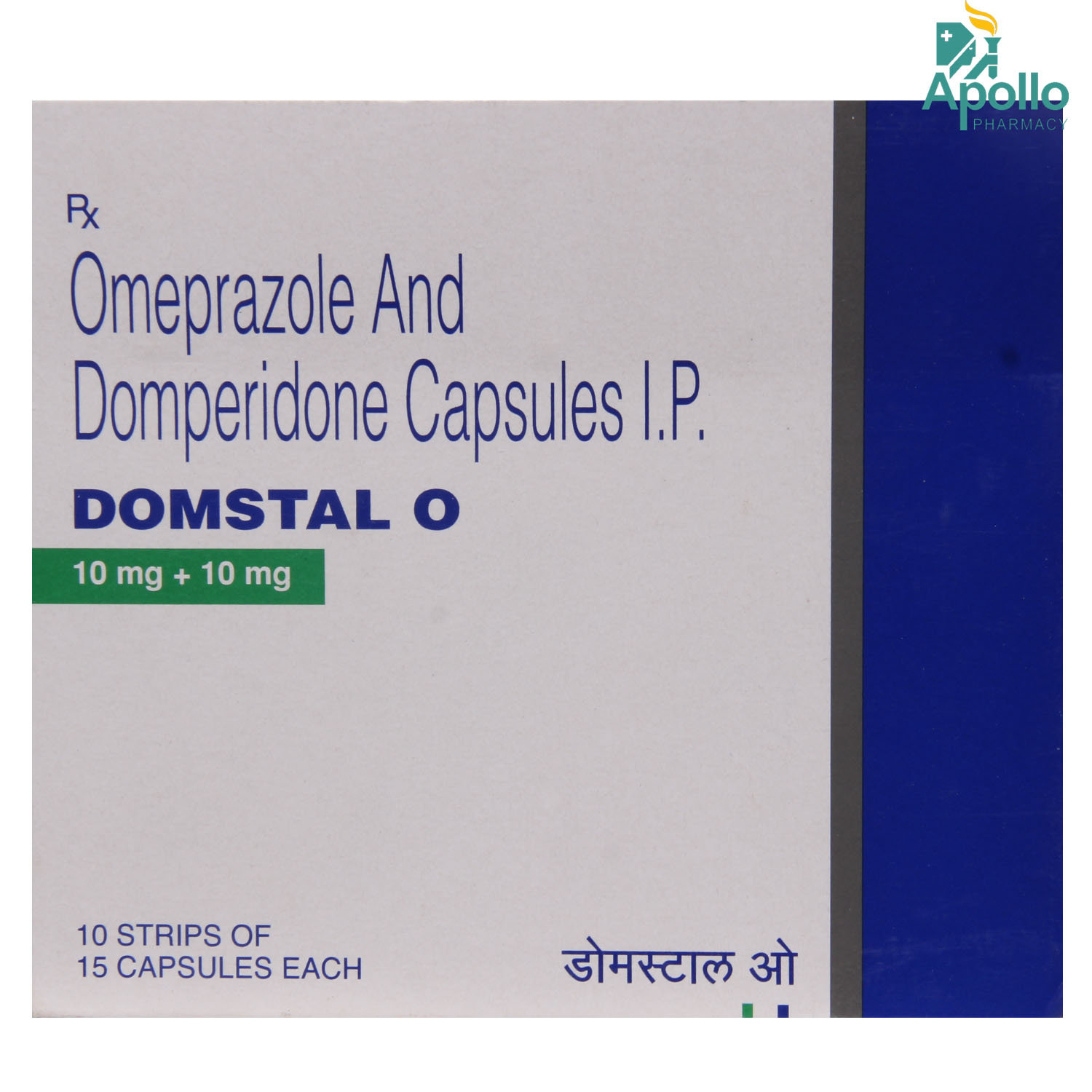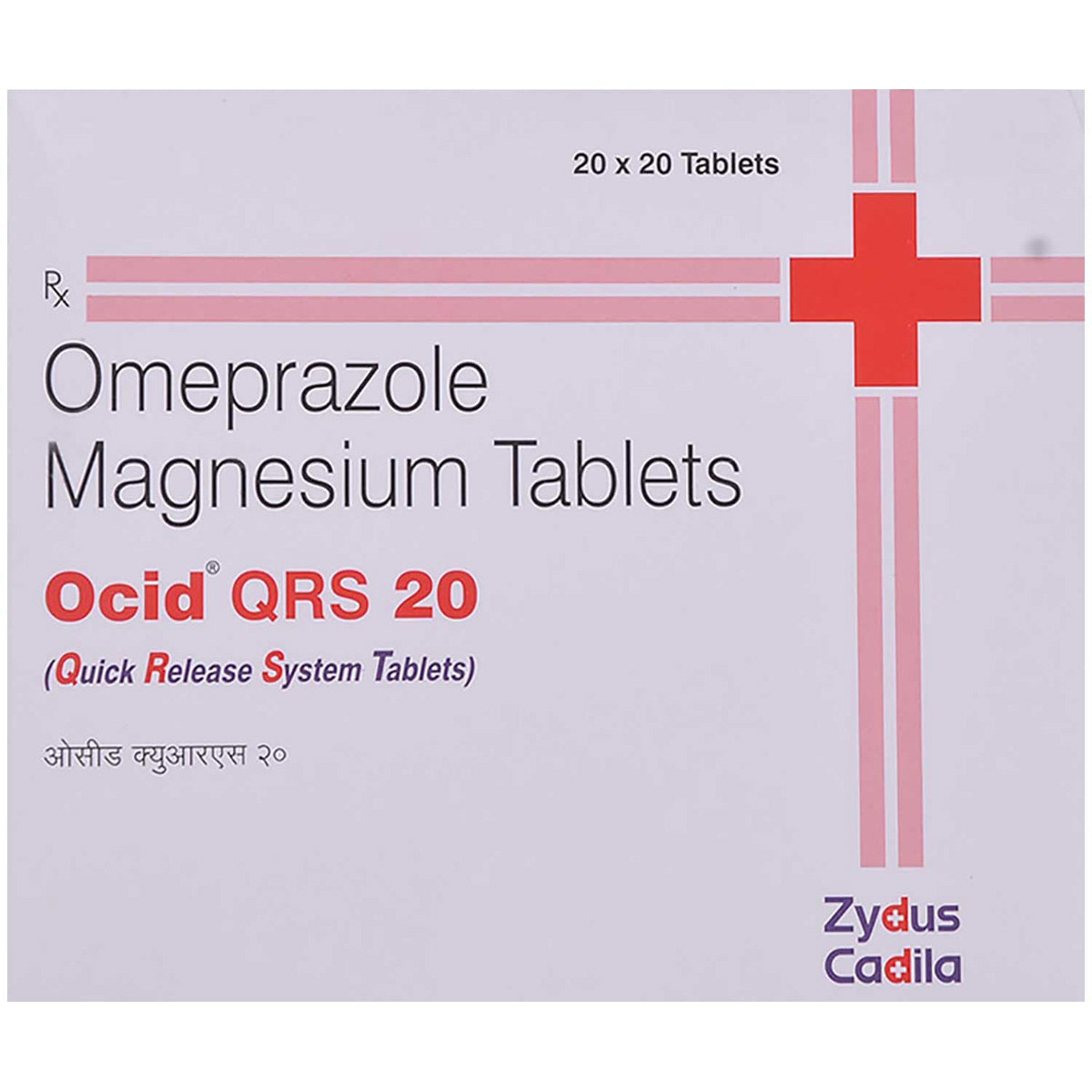Omeprazole
About Omeprazole
Omeprazole is used to treat gastroesophageal reflux disease (GERD), peptic ulcer (stomach or duodenal ulcer), and Zollinger-Ellison syndrome (overproduction of acid due to a pancreatic tumour). Normally, a thick layer of mucus protects the stomach against its own acid secretion. But, in the long run, it gets eroded by excessive stomach acid production, leading to complications like GERD, peptic ulcer, and Zollinger-Ellison syndrome.
Omeprazole contains omeprazole, which prevents the release of stomach acid and relieves symptoms such as food pipe lining inflammation (esophagitis), acid reflux, or heartburn.
Omeprazole may cause common side effects like stomach pain, gas formation (flatulence), nausea, vomiting, diarrhoea, and headache. These side effects are temporary and may resolve on their own. However, if the side effects persist or worsen, consult your doctor.
Before taking Omeprazole, inform your doctor if you are allergic to any of its components or to other proton pump inhibitors. Also, tell your doctor if you have stomach or intestinal cancer, severe liver problems, difficulty swallowing, bloody or black stools, unexplained weight loss, or if you will have an endoscopy in the future. Consult your doctor before taking Omeprazole if you are pregnant or breastfeeding.
Uses of Omeprazole
• Gastroesophageal Reflux Disease (GERD) Treatment: Omeprazole is commonly used to treat GERD. It is a proton pump inhibitor (PPI) that reduces stomach acid production, thus providing relief from acid reflux symptoms.
• Peptic Ulcer Treatment: Omeprazole is also used to treat ulcers in the stomach and intestine (duodenum). It is effective against ulcers associated with Helicobacter pylori infection and those caused by non-steroidal anti-inflammatory drugs (NSAIDs).
• Zollinger-Ellison Syndrome Treatment: Omeprazole is also prescribed for Zollinger-Ellison syndrome to help control acid production and manage symptoms.
• Hyperacidity Relief: Omeprazole helps to relieve hyperacidity by reducing the production of stomach acid.
• Dyspepsia relief: Omeprazole provides relief from dyspepsia symptoms like bloating, heartburn, and stomach pain by reducing stomach acid secretion.
• Preventive Therapy: Omeprazole is also used to prevent stomach ulcers, stress-related ulcers, and aspiration syndrome during anaesthesia (a condition where stomach contents accidentally enter the lungs).
Medicinal Benefits
- Omeprazole is effective in relieving symptoms of gastroesophageal reflux disease (heartburn), Zollinger-Ellison syndrome, and peptic ulcers (stomach or duodenal ulcers), as well as healing erosive esophagitis (inflammation of the food pipe).
- Omeprazole contains omeprazole, which works by irreversibly blocking the proton pump gate (which secretes stomach acid).
Directions for Use
- Omeprazole can be taken with or without food. However, it is recommended to take it 30-60 minutes before a meal, preferably in the morning, for optimal effectiveness.
- It is typically administered once daily, but your doctor will determine the exact dose and timing based on your specific medical condition.
- Swallow it as a whole with a glass of water.
- Do not crush, chew, break, or open it.
Storage
Side Effects of Omeprazole
- Stomach pain
- Gas formation (flatulence)
- Nausea
- Vomiting
- Diarrhea
- Headache
Medicines Containing this Salt
View AllDrug Warnings
- Do not take Omeprazole if you are allergic to any of its components, other proton pump inhibitors, or if you are taking medications for HIV such as nelfinavir.
- Inform your doctor if you have stomach or intestinal cancer, severe liver problems, difficulty swallowing, bloody or black stools, unexplained weight loss, hypomagnesemia (low blood magnesium levels), stomach problems (such as pain or indigestion), or will have an endoscopy in the future.
- Omeprazole should not be given to patients suffering from Clostridium difficile-associated diarrhea.
- Avoid prolonged use of Omeprazole, as it may increase the risk of osteoporosis-related fractures of the hip, wrist, or spine due to loss of magnesium.
- Consult your doctor before taking Omeprazole if you are pregnant or breastfeeding.
- Omeprazole should not be given to children under 1 year of age.
Drug Interactions
Drug-Drug Interactions: Omeprazole may interact with blood thinners (clopidogrel, warfarin), antifungals (ketoconazole, voriconazole, itraconazole, posaconazole), anti-HIV drugs (atazanavir, nelfinavir), iron supplements, antibiotics (ampicillin, rifampicin), heart medicines (digoxin), and anti-cancer drugs (methotrexate).
Drug-Food Interactions: Avoid taking St John's wort (a herbal supplement used as an antidepressant) with Omeprazole, as it may interfere with the working of this medication
Drug-Disease Interactions: Inform your doctor before taking Omeprazole if you have stomach or intestinal cancer, severe liver problems, hypomagnesemia (low blood magnesium levels), bone problems (osteoporosis), and Clostridium difficile-associated diarrhea.
Drug-Drug Interactions Checker List:
Safety Advice

Alcohol
cautionDrinking alcohol with Omeprazole may cause dehydration and elevate the level of stomach acid, thereby decreasing its efficiency. So, try to avoid or limit alcohol and contact the doctor before intake of Omeprazole.

Pregnancy
consult your doctorIt is unknown whether Omeprazole affects the baby or not. Please consult your doctor before taking Omeprazole if you are pregnant or planning to become pregnant.

Breast Feeding
consult your doctorIt is unknown whether Omeprazole passes into the breast milk. Please consult your doctor before taking Omeprazole if you are breastfeeding.

Driving
cautionOmeprazole may cause dizziness, sleepiness, or blurred vision. If you experience these symptoms, refrain from driving or operating heavy machinery until you have fully recovered.

Liver
cautionOmeprazole should be taken with caution, especially if you have a history of liver diseases/conditions.

Kidney
cautionOmeprazole should be taken with caution, especially if you have a history of kidney diseases/conditions.

Children
cautionOmeprazole should not be given to children under 1 year of age. Omeprazole is generally safe to use in children over 1 year when prescribed by a doctor.
Habit Forming
Diet & Lifestyle Advise
- Avoid intake of acid or heartburn-triggering foods or drinks like onions, peppermint, chocolate, caffeinated beverages, citrus fruits or juices, tomatoes, and high-fat and spicy foods.
- Before going to sleep, try to raise your bedhead so that your head and chest are higher than your feet. Do not use piles of pillows; instead, one raised block is fine. This will not allow the stomach acid to backflow through your food pipe.
- Avoid taking alcohol and smoking cigarettes. Alcohol can raise the level of production of stomach acid, leading to heartburn and acid reflux. On the other hand, nicotine smoking damages the valve (sphincter) which prevents backflow of the stomach acid back into the food pipe.
- Include high-fibre containing foods, berries, cherries, leafy green veggies (kale, spinach), and black pepper in your meal. These foods are rich in antioxidants, calcium, and vitamin B12, which can help mitigate the long-term effects of the medicine. Fermented dairy products like miso, sauerkraut, and kimchi contain probiotics, which help in the prevention of excess stomach acid production. Cranberry juice can be beneficial in peptic ulcer and H. pylori infection.
- Avoid sitting continuously, as it can increase stomach acid production. Try to take a break of 5 minutes in 1 hour by brisk walking or stretching.
Special Advise
- Consult your doctor before taking Omeprazole if you have low levels of vitamin B12 or if you are scheduled for a specific blood test called Chromogranin A.
- Inform your doctor immediately if you develop a skin rash, particularly in areas exposed to sunlight, as you may need to discontinue Omeprazole. Also, report any other symptoms, such as joint pain.
Patients Concern
Disease/Condition Glossary
Gastroesophageal reflux disease (GERD): It is a gastrointestinal disorder that occurs when stomach acid frequently flows back into the food pipe (esophagus). This backflow (acid reflux) irritates the food pipe and causes heartburn.
Peptic ulcers: It is a painful condition followed by the development of sores or ulcers in the stomach lining or duodenum (the first part of the small intestine) (the duodenum).
Zollinger-Ellison syndrome: It is a rare condition in which a gastrin-secreting pancreatic tumor causes excessive acid production, leading to peptic ulcers.
FAQs
Omeprazole is used to treat gastroesophageal reflux disease (GERD), peptic ulcer (stomach or duodenal ulcer), and Zollinger-Ellison syndrome (overproduction of acid due to a pancreatic tumor).
Omeprazole contains omeprazole (a proton pump inhibitor), which helps reduce stomach acid by blocking the action of an enzyme called H+/K+ ATPase (the gastric proton pump). This proton pump lies in the stomach wall cells and is responsible for releasing gastric acid. Omeprazole prevents the release of stomach acid and relieves symptoms such as food pipe lining inflammation (esophagitis), acid reflux, or heartburn.
Prolonged intake of Omeprazole may lead to atrophic gastritis (inflammation of stomach cells), vitamin B12 deficiency, and weakening of bones or osteoporosis (loss of calcium, magnesium, and vitamin D). Your doctor may prescribe calcium, vitamin D, or haemoglobin-enhancing medications to cope with long-term side effects.
No. Omeprazole is not prescribed for stomach cancer. Omeprazole is only indicated for the treatment of hyperacidity, acid reflux symptoms (GERD), heartburn and Zollinger-Ellison syndrome.
No. Gas and acidity are two different common discomforts. Acidity is caused when the improper functioning of the valve (sphincter) is located at the junction of the stomach and the food pipe. As a result, stomach acid backflows and enters the upper part of the food pipe, causing heartburn. On the other hand, gas is the result of the digestion of food and drinks, eliminating gases like carbon dioxide, hydrogen, nitrogen, methane, etc., from the body.
Yes. Omeprazole can alter certain medical tests like neuroendocrine tumors (secretin stimulation test) and urine screening tests for tetrahydrocannabinol (THC). So before undergoing such diagnostic tests, contact your doctor.
No. Omeprazole prevents the excessive production of stomach acid, which can cause acid reflux and heartburn. If you notice blood in your stool or mucous, immediately contact the doctor.
Omeprazole can be taken with or without food. However, it is recommended to take it 30-60 minutes before a meal, preferably in the morning, for optimal effectiveness.
Yes, you can take Omeprazole with domperidone; however, it should be taken only as recommended by the doctor.
Before taking any medication, including Omeprazole, it's important to consult with a doctor. They can assess your individual needs and provide customised advice. Follow the instructions provided by your healthcare professional and be aware of potential adverse effects. If you have any concerns, don't hesitate to ask for clarification.
Diarrhea is a possible side effect of omeprazole. It's often mild and short-lived, but if it's severe or accompanied by other symptoms, please see your doctor.
The duration of omeprazole treatment is individualized and depends on your specific condition and response to the medication.
Omeprazole can increase the risk of calcium deficiency and osteoporosis if taken for a long time. This is because it can interfere with calcium absorption. If you're taking omeprazole for a long time, talk to your doctor about the risks and benefits.
Yes, long-term use of Omeprazole may increase the risk of vitamin deficiencies, particularly vitamin B12. If you have any concerns or face any adverse effects related to vitamin deficiencies, please consult your doctor.
The decision to prescribe omeprazole to cardiac patients should be made on an individual basis, taking into account their medical history and associated risk factors.
Swallow Omeprazole as a whole with a glass of water; do not crush, chew, break, or open it.
Omeprazole may cause common side effects, such as stomach pain, gas formation (flatulence), nausea, vomiting, diarrhea, and headache. These side effects are temporary and may resolve themselves over time. However, if the side effects persist or worsen, contact the doctor.
Before taking Omeprazole, please inform your doctor about all your medical conditions, sensitivities, and all medications you are currently using. And tell your doctor if you are pregnant, planning to become pregnant, or breastfeeding.
Yes, Omeprazole can interact with other medications. It's important to inform your doctor about all the medications you're taking, including prescription medications, over-the-counter drugs and herbal supplements.
